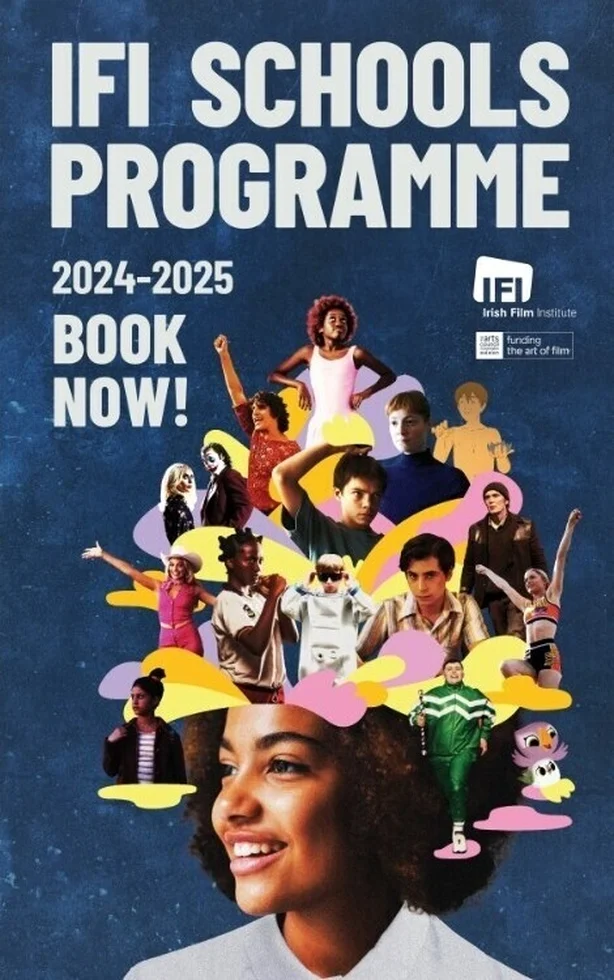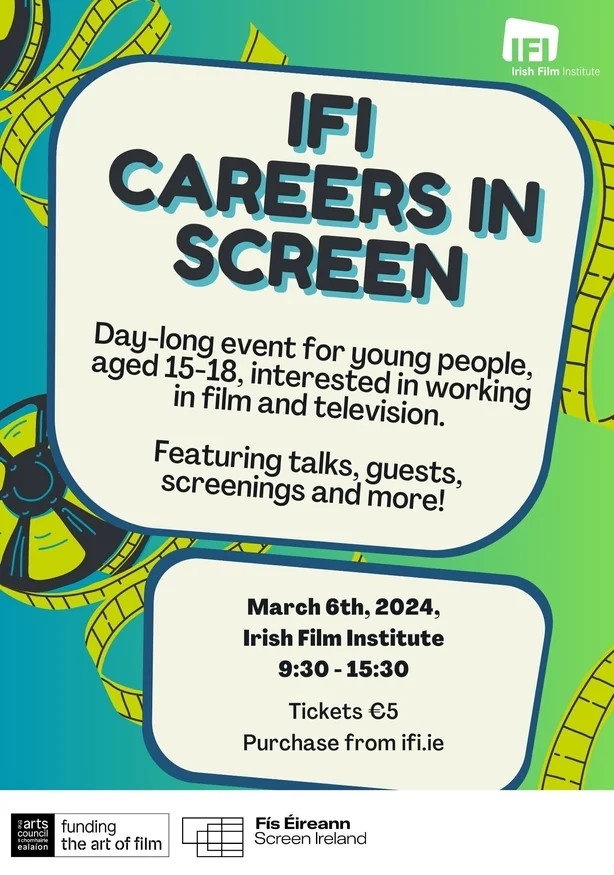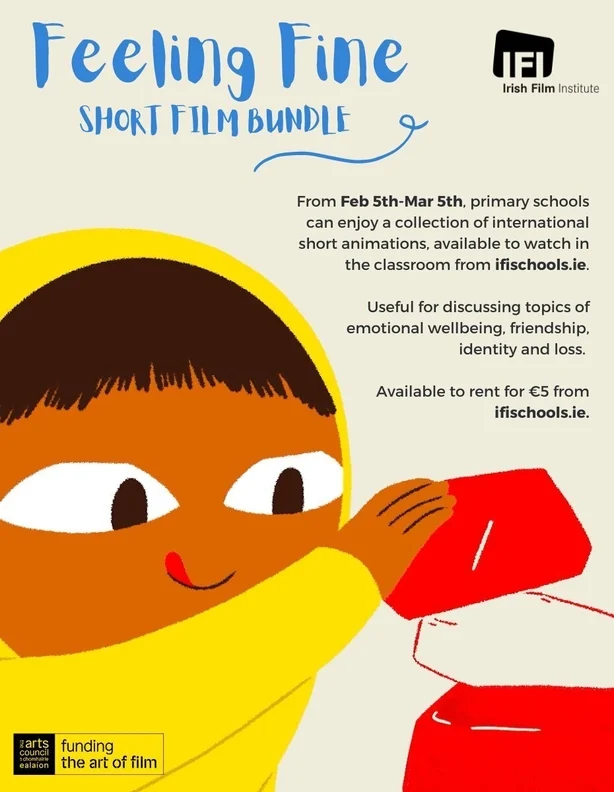Dec 24, 2024
Nov 16,2024
Since the earliest days of its existence the Irish Film Institute has been involved in education. Although the reasoning behind the Institute’s educational activity may have changed dramatically over the last 8 decades, it remains a stated core part of the IFI’s mission to "Exhibit, Educate and Preserve".
In fact when the Institute was established as the National Film Institute in 1943, one of its main objectives was to help the Catholic Church combat what Pope Pius XI called 'the school of corruption’ in the motion picture industry. With the support of Archbishop of Dublin, John Charles McQuaid, the Film Institute aimed to be both teacher and moral guardian of the nation’s cinema-going public by harnessing this popular entertainment medium into what the Church referred to as "an effectual instrument for the education and the elevation of mankind’.
In order to fulfil this educational remit the NFI developed an extensive library of educational and cultural films which could be borrowed by schools, colleges and associations, as well as producing educational ‘filmstrips’ for use in the classroom by teachers. They also became involved in filmmaking, producing a range of safety, health and educational films between the 1940s and the 1960s, many of which were commissioned by government departments. From 1946, the Film Institute also held regular film summer schools instructing teachers, clergy and film enthusiasts on the projection and production of films.
By the early 1980s, the influence of The Roman Catholic church within the Institute had diminished, and the decision was made to delete any references to the Church from the organisation’s articles of association, thus reflecting its new secular nature; a change of name to the Irish Film Institute (IFI) soon followed. While the revitalised organisation was no longer concerned with the morals of its audience, education through and about film was still a vital part of its remit. As a result a new forward thinking education department was developed. The late Martin McLoone was appointed as the IFI’s first Education Officer and the aim of encouraging audiences of all ages and abilities - from primary-school children to senior citizens - to learn through and from film, commenced in earnest.
Over the past four decades the IFI’s dynamic education department has expanded its reach and ambition, promoting a range of initiatives across different platforms and locations in order to cater for audiences of all ages.

At the heart of IFI Education is the IFI Schools programme which caters for primary and secondary school students by hosting screenings across the country and online, and providing study guides and teacher training to support film in curricula. Additionally the ever popular Careers in Screen initiative connects 15-to-18 year olds with the screen industries through an exciting programme of talks, workshops and masterclasses led by film practitioners. Many of these events have been recorded and can be viewed here.

The IFI Education team have recently combined IFI Careers with IFI Schools in an exciting new programme called IFI Next Generation 15-19, which is supported by Screen Ireland and delivered in partnership with film resource organisations and festivals across the country. Its roadshow approach aims to inspire young people and facilitate a greater understanding of film culture, film watching and filmmaking. And of course since it first launched in 2010, our annual Family Festival has been a highlight of the Summer. Running for 3 days over August, it caters for younger family members with a host of fun activities, screenings and events. Last but not least in IFI Education's extensive programme is IFI Wild Strawberries, the twice-monthly over 55s film club, which screening new releases, classics, Irish and arthouse cinema at reduced rates to older audiences, and acting as a social nexus for regular members.

In addition to the immense range of work undertaken by IFI Education, IFI Archive regularly partners with educational organisations to deliver projects that would otherwise be beyond our resources. An excellent example of this is the AHRC-Research Ireland funded Make Film History project (which I mentioned previously here).
The Make Film History project has taken an innovative approach to solving the issue of how archives can facilitate the creative reuse by emerging filmmakers of collections in their care. Through the MFH platform 300 films from the BFI National Archive, BBC Archive, Northern Ireland Screen, the Irish Film Institute and the London Community Video Archive are available to filmmakers in schools, film training programmes and higher education institutions across the UK and Ireland. So far over 92 institutions have signed up to the scheme, which is led by Dr Shane O’Sullivan (Kingston School of Art) and Dr Ciara Chambers (University College Cork) with support from Dr Colm McAuliffe (Kingston School of Art). The current aim is to expand the project by extending its membership beyond higher education organisations to emerging filmmakers in other contexts, across the UK and Ireland
Earlier this month the Make Film History team added an exciting new layer to the project. A free to access eLearning course was launched, with workshops at the British Film Institute and Irish Film Institute. The course comprises modules on subjects such as copyright, editing, sound and creative reuse, featuring interviews with filmmakers such as Emer Reynolds, David Puttnam, Mark Cousins and Tadhg O’Sullivan as well as archivists, editors, archive producers and copyright experts. The parallel launch of a new portal streamlines the user interface and gives students direct access to watch and download the archive films that are made available through the scheme.
Being part of the MFH project has transformed how we make the IFI’s archive collections available to students. It has given us a safe way to give access to these films within a non-commercial context. In addition to encouraging emerging filmmakers to explore use of archive, the project helps them to understand the complexities of rights clearance, physical preservation and the ethics of creative reuse. Our contribution to Make Film History has also allowed us to join a network of academic, research and cultural partners who share our desire to harness the educational potential of the moving image, a mission the founding fathers of the Film Institute would no doubt approve of!
For info on Make Film History go here, and learn more about IFI Education's extensive range of activities here.